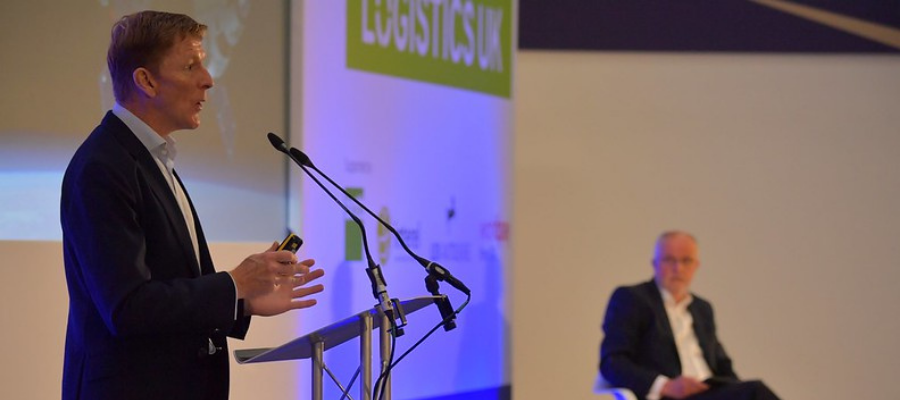🕒 Article read time: 2 minutes
There is no planet B, astronaut Tim Peake tells ITT Hub delegates

Keynote speaker British astronaut Major Tim Peake issued an urgent climate change warning to attendees at this year’s Future Logistics Conference, part of ITT Hub, yesterday (Wednesday 30 June 2021).
Peake stressed the importance of prioritising the decarbonisation of transport to protect the future health of our planet.
In an inspiring, informative and wide-ranging keynote speech, Major Peake covered logistics in space, the increasing use of virtual reality and artificial intelligence and how it could change the way transport operates on earth, stories from his time on the International Space Station (ISS) and the very real prospect of manned missions to the moon within the new few years. But it was the urgent need to search for sustainable solutions to the decarbonisation challenge that really resonated with delegates.
“The transport and logistics sector is changing rapidly,” Peake said, “its innovation and creativity are infusing new ways of thinking to the industry. It’s going to revolutionise the way we deliver products and how you manage data to improve our lifestyles. And it’s going to completely change our relationship with transportation as well. Of course, at the forefront of all this is a drive towards decarbonisation and our target of net zero for a sustainable future.”
In transport, progress in sustainability is often measured by emissions or the increase in sales of electric vehicle, but Peake said that sustainability was a big issue in space exploration too. He cited the work of SpaceX, which had slashed the cost of flying a kilogramme into space from $54,000 to less than $3,000 by using sustainable technology – something which could translate into transport solutions on Earth in the near future.
“As astronauts, we’re constantly pushing the boundaries of what’s possible, and that includes life on board the International Space Station, using it as a platform for innovation and technology,” he said.
Peake described the virtual reality systems on board the ISS, which helped astronauts prepare for space walks, and gave them greater confidence in tackling complex tasks.
“When it comes to space walking, an astronaut’s greatest fear is tumbling off into the black abyss of space,” he said, “Anyone who’s seen the opening scenes of the film Gravity may have an idea of what that may feel like.”
On the logistics of delivering goods to the ISS, Peake shared a picture of himself practising capturing a visiting cargo vessel. Cargo delivery flights are needed at least four times every year at the ISS to resupply astronauts with their food and clothing, as well as materials and equipment for experiments.
“Capturing a cargo vessel in space is a really high-pressure moment for any astronaut. I must have practised this at least 100 times before actually going for the live capture itself,” he said. “When you’ve got $100 billion of space station and a couple of hundred million dollars of a cargo vehicle at stake, then those famous NASA words ‘failure is not an option’ really spring to mind.”
Peake also spoke about the increased use of artificial intelligence in space exploration and the sustainable closed loop system used on board the ISS, which recycles up to 90% of the water used and is totally reliant on solar power.
Intriguingly, Peake also revealed how the ISS will be used as a stepping stone for NASA’s Artemis program to return humans to the moon. “For the first time since 1972 we can look forward to seeing humans on the surface of the moon again, which is really exciting,” he said, predicting that by the end of this decade, astronauts would spend six months on the surface of the moon as routinely as they spend six months on the ISS today, as part of a sustained and sustainable mission.
Concluding his speech, Peake returned to the urgent need to find sustainable solutions for challenges throughout transport and other business sectors, explaining how viewing the Earth from space offers a unique perspective on its essential fragility. “The further we travel away from planet Earth,” he said, “the more precious our home planet seems to be. From space it is startling clear to see that there is no planet B.”
*www.logistics.org.uk/events/itt-hub
Published On: 01/07/2021 16:00:43

Comments Section
If you are a Logistics UK member login to add comments.